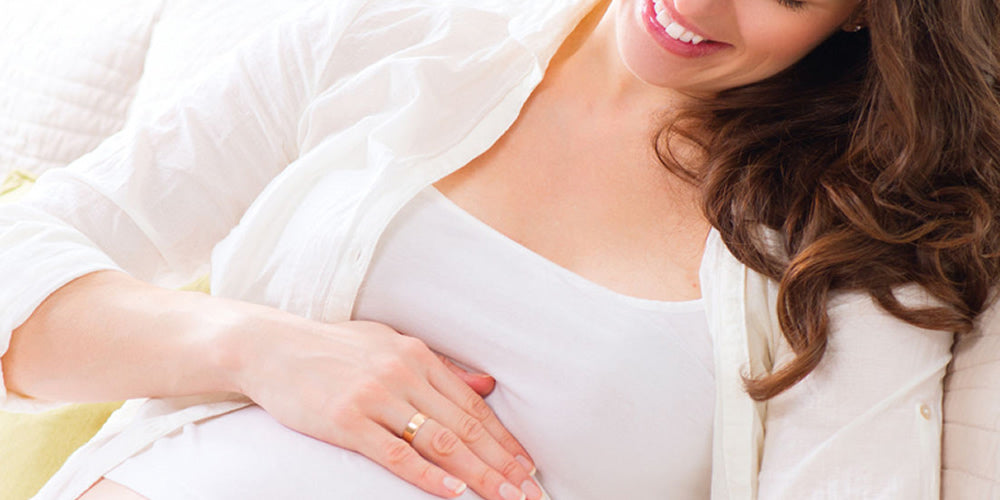Pregnancy and your hair?
12Jul

You may or may not know that pregnancy can affect your hair in many different ways. Some women find their hair looks better than ever during pregnancy and some find their hair to be more problematic. Phillip Kingsley, a leading haircare expert, conducted a study of over 375 women to find out how pregnancy affected the hair. A third of the women in the study said they saw an improvement in their hair after 4-5 months, noticing it looked fuller and shinier. However, another third of the women found their hair was drier and the rest found no difference at all. It is hard to know exactly how pregnancy affects your hair as it can change due to hormones, vitamin levels and stress so even if you have great hair in your first pregnancy, it could be quite different in your second.
Some women find their hair during pregnancy to be thicker and bouncier in their first trimester but this isn’t actually the case. Hair takes round 6 months to a year to notice any overall thickness. The reason for the perceived thickness is actually down to increased estrogen levels which causes your follicles to produce less sebum (oil) so your roots will look bouncier and will need washing less often.
So how does pregnancy affect hair loss? On the whole, very little hair is shed during pregnancy so it will seem thicker towards the middle or end of your pregnancy. The higher levels of estrogen in your body keeps your hair in the growing (anagen) phase for longer than normal. Once your baby is born however, many women experience post-partum hair loss as your estrogen levels drop back to normal. This can seem more dramatic at the time as all those hairs that have not been shed throughout your pregnancy now start to fall out, making your hair feel thinner but in fact it is actually returning to its previous, normal state. This is called telogen effluvium (excessive shedding of hair) and is perfectly normal. Around 50% of women experience this after giving birth and it is temporary. The loss of hair will normally peak 3-4 months after giving birth as your hair follicles rejuvenate themselves.
If you do experience post-pregnancy excessive shedding then eating a diet high in fruit and vegetables as they often contain antioxidants and flavonoids which provide protection and encourage hair growth. It is also worth taking supplements that contain vitamin B complex, biotin, vitamin C & E and zinc. Try to avoid any tight hair styles, extensions and weaves during this time as these can weaken hair significantly. Be gentle with your hair, especially when wet as this is when brushing it can cause unnecessary breakage.
Some women find their hair during pregnancy to be thicker and bouncier in their first trimester but this isn’t actually the case. Hair takes round 6 months to a year to notice any overall thickness. The reason for the perceived thickness is actually down to increased estrogen levels which causes your follicles to produce less sebum (oil) so your roots will look bouncier and will need washing less often.
So how does pregnancy affect hair loss? On the whole, very little hair is shed during pregnancy so it will seem thicker towards the middle or end of your pregnancy. The higher levels of estrogen in your body keeps your hair in the growing (anagen) phase for longer than normal. Once your baby is born however, many women experience post-partum hair loss as your estrogen levels drop back to normal. This can seem more dramatic at the time as all those hairs that have not been shed throughout your pregnancy now start to fall out, making your hair feel thinner but in fact it is actually returning to its previous, normal state. This is called telogen effluvium (excessive shedding of hair) and is perfectly normal. Around 50% of women experience this after giving birth and it is temporary. The loss of hair will normally peak 3-4 months after giving birth as your hair follicles rejuvenate themselves.
If you do experience post-pregnancy excessive shedding then eating a diet high in fruit and vegetables as they often contain antioxidants and flavonoids which provide protection and encourage hair growth. It is also worth taking supplements that contain vitamin B complex, biotin, vitamin C & E and zinc. Try to avoid any tight hair styles, extensions and weaves during this time as these can weaken hair significantly. Be gentle with your hair, especially when wet as this is when brushing it can cause unnecessary breakage.

